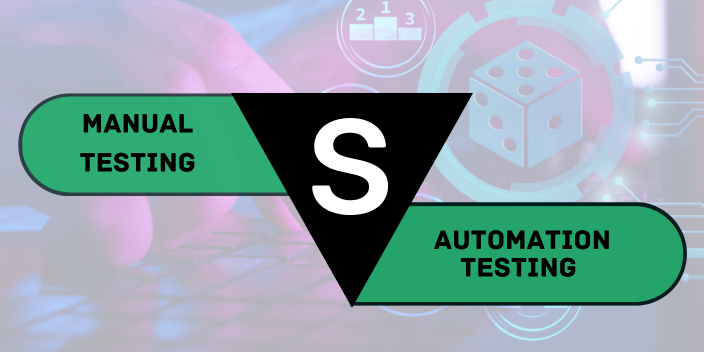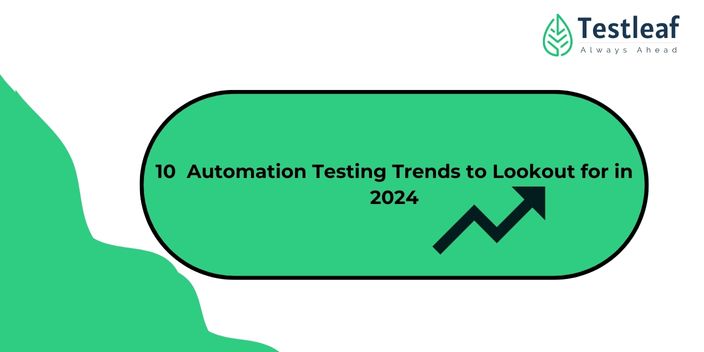A Guide to Elevate Your Quality Assurance Journey
The Quality Assurance (QA) field is rapidly evolving. Gone are the days when QA was solely about manual testing and finding bugs at the end of a project. Today, QA professionals are expected to be involved throughout the software development lifecycle, mastering automation, performance testing, security testing, and even integrating into DevOps practices.
If you are looking to accelerate your career growth in QA and advance quickly, here’s a strategic guide to help you excel in this dynamic field and position yourself as a top-tier QA expert.
1. Master Automation Testing
While manual testing is essential, to grow your career in QA, mastering automation testing is non negotiable. Companies are shifting towards faster delivery cycles, and automated tests are the backbone of this speed.
Get Hands-On with Automation Tools: Begin with tools like Selenium, Playwright for web applications, Appium for mobile apps, and Cypress for modern JavaScript frameworks.
Learn Scripting: To be an effective automation engineer, learn to write scripts in languages such as Java, Python, or JavaScript. This skill enables you to create robust, reusable test automation frameworks.
Actionable Step: Build a portfolio of automation scripts showcasing your ability to automate test cases, integrate them into Continuous Integration (CI) pipelines, and run them in real-world scenarios.
2. Dive into Performance Testing
Performance testing is crucial, especially for large-scale applications where user load can impact the application’s responsiveness.
Learn Performance Testing Tools: Explore tools like JMeter, LoadRunner, and Gatling to simulate thousands of users and measure an application’s performance under stress.
Understand Key Metrics: Analyze key metrics like response time, throughput, and system resource usage to provide meaningful insights to your team.
Actionable Step: Experiment with performance tools and create real-world performance test cases. Detecting performance bottlenecks will elevate your contributions beyond functional testing.
3. Embrace DevOps and CI/CD Pipelines
The integration of QA into DevOps practices is revolutionizing how software is developed and tested. Learning how QA fits into Continuous Integration (CI) and Continuous Delivery (CD) processes can give you an edge.
Integrate Testing in CI/CD: Use tools like Jenkins, GitLab CI, or CircleCI to integrate automated tests into the build process. This ensures every code change is tested automatically, reducing bugs in production.
Shift-Left Testing: Adopt shift-left testing, where QA is involved early in the software development lifecycle. This reduces bug-fixing costs and improves overall product quality.
Actionable Step: Learn to integrate your automated tests into CI/CD pipelines, making you a key player in ensuring continuous quality throughout the development process.
4. Learn Security Testing
With security becoming a top priority, security testing is another valuable skill that can propel your QA career. Ensuring applications are secure from vulnerabilities is a critical part of modern QA roles.
Familiarize Yourself with Security Testing Tools: Tools like OWASP ZAP or Burp Suite can help identify vulnerabilities in web applications.
Learn About Common Security Risks: Understand the OWASP Top 10 vulnerabilities and how to test for them, such as SQL injection, Cross-Site Scripting (XSS), and Cross-Site Request Forgery (CSRF).
Actionable Step: Get certified in security testing or attend workshops that focus on application security to make yourself an indispensable resource for secure product delivery.
5. Leverage AI and Machine Learning in Testing
AI and machine learning are starting to transform QA, particularly in areas like test automation and defect prediction. Leveraging AI-driven tools can distinguish you from your peers.
Explore AI-Powered Testing Tools: Use tools like Testim.io or Functionize to create self-healing tests and reduce maintenance for large automation suites.
Learn About Predictive Analytics: Use machine learning to predict defects based on historical data, enabling you to focus on high-risk areas.
Actionable Step: Experiment with AI-powered testing tools and explore how AI can automate repetitive tasks and reduce test maintenance time.
6. Expand Your Expertise to API Testing
With modern applications relying heavily on APIs, mastering API testing is essential for QA professionals.
Use API Testing Tools: Tools like Postman, SoapUI, and RestAssured are excellent for automating API testing and ensuring correct functionality under various conditions.
Automate API Testing: Write automated API tests to validate response formats, status codes, and payloads. This is particularly useful for microservices architectures.
Actionable Step: Create automated API tests for your application’s backend and integrate them into your automation framework.
7. Strengthen Your Soft Skills and Leadership Abilities
A successful QA professional is not just technically proficient but also a good communicator and leader who advocates for quality across the organization.
Enhance Communication Skills: Clearly articulate issues, suggest solutions, and collaborate with development, product, and business teams.
Develop Leadership Skills: Mentor junior QA engineers, lead teams, or manage QA projects to advance into roles like QA Lead, Test Architect, or QA Manager.
Actionable Step: Take on responsibilities that allow you to mentor others or manage testing projects. Leadership and communication skills are essential for advancing into higher roles.
8. Invest in Certifications and Continuous Learning
Certifications and continuous learning validate your skills and help you stay ahead in the competitive QA field.
Popular Certifications: ISTQB, Certified Agile Tester (CAT), or Certified Scrum Master (CSM) can enhance your resume and credibility.
Continuous Learning: Stay updated with the latest trends in automation, DevOps, and testing tools. Platforms like testLeaf.com offer courses to keep you competitive.
Actionable Step: Get certified in a field relevant to your work and take courses to remain up-to-date with industry trends.
9. Network and Share Your Knowledge
Networking and contributing to the QA community can open doors and provide opportunities for collaboration and learning.
Join QA Communities: Connect with industry professionals on platforms like LinkedIn, Stack Overflow, or QA-specific forums such as TestLeaf.
Attend Conferences and Webinars: Participate in industry events to stay informed about advancements and trends.
Actionable Step: Engage with the QA community, attend conferences, and share your experiences through blogs or talks to enhance your professional visibility.
Conclusion
Accelerating your career growth in QA requires more than just technical expertise—it demands continuous learning, adaptability, and a proactive approach to mastering the latest trends and tools. By embracing automation, diving into performance and security testing, and developing leadership skills, you can position yourself as a highly sought-after QA professional.
Remember, the key to career growth is not just mastering one aspect of QA but becoming a versatile, multi-skilled professional who adapts to the fast-paced world of software development. By following this guide, you’ll be well on your way to long-term success in the ever-evolving field of Quality Assurance.
Boost your skills with top-notch selenium automation testing courses designed to advance your career in software testing.
We Also Provide Training In:
- Advanced Selenium Training
- Playwright Training
- Gen AI Training
- AWS Training
- REST API Training
- Full Stack Training
- Appium Training
- DevOps Training
- JMeter Performance Training
Author’s Bio:

As CEO of TestLeaf, I’m dedicated to transforming software testing by empowering individuals with real-world skills and advanced technology. With 24+ years in software engineering, I lead our mission to shape local talent into global software professionals. Join us in redefining the future of test engineering and making a lasting impact in the tech world.
Babu Manickam
CEO – Testleaf







